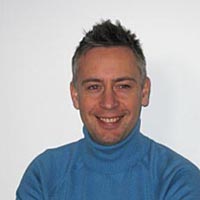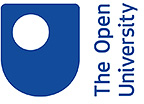You are here
- Home
- Events
Events
The Public Role of the Academic in Contemporary Society
25 October 2013
The OU in London, 1-11 Hawley Crescent, London NW1
This opening one-day conference explored what it means to be a ‘public intellectual’ in the 21st century, the range of meanings this term carries and the various ways in which academics can wield influence beyond the academy. Speakers included Sarah Churchwell, Professor of American Literature and Public Understanding of the Humanities, University of East Anglia; Rick Holliman, Champion for Public Engagement with Research, Open University and Paul Lawrence, Associate Dean (Research), Arts Faculty, Open University. As well as participating in discussions, the student cohort refined their own understanding of what it means to be a public intellectual, and reflected on their own ambitions in this regard.
Working with (rather than for) the Media
29 November 2013
The OU in London, 1-11 Hawley Crescent, London NW1
This one-day workshop introduced the cohort to the variety of commissioning processes and timetables involved in television, radio and the printed/online press. The workshops included presentations and Q & A sessions with representatives from television, radio and the press as well as academics who have successfully worked with the media. Speakers were Annabel Hobley, BBC1 producer; Helene Murphy, Open University Press Officer; Zahid Warley, BBC Radio 3 producer; Chris Williams, Lecturer in History, The Open University; Brett Mills, Senior Lecturer in Film, Television and Media Studies, University of East Anglia and Pamela Cox, Senior Lecturer in Criminology, University of Essex.
Broadcast Media Training – Appearing on Television and Radio
13 December 2013
The Open University, Walton Hall, Milton Keynes
This one-day, hands-on training event took place at the recording facilities at The Open University, Milton Keynes. The media training provided practical experience of how to present work on radio and television, highlighting the key differences between academic and public/media presentations and registers. The student cohort gained experience on both sides of the camera and the training was delivered by Fiona Cotterill and Alison Rusted from Alfimedia.
Extending Influence via Collaborative Working I - Public Institutions
17 January 2014
The Courtauld Institute of Art, Somerset House, London WC2R
This event brought together existing CHASE partner contacts to discuss the interface between academic research and the public engagement priorities of galleries, museums and libraries. It drew on exemplar projects such as Gill Perry’s curation of ‘The First Actresses’ at the National Portrait Gallery and David Solkin’s ‘Turner and the Masters’ at Tate Britain, and involved CHASE strategic partners such as The British Film Institute. Speakers included David Solkin, Dean and Deputy Director, The Courtauld Institute of Art; Gill Perry, Professor of Art History, The Open University, Mark Duguid and Nathalie Morris, Senior Curators, British Film Institute and Tanya Kirk, Curator, British Library.
Extending Influence via Collaborative Working II – Creative Industry and Community Groups
7 February 2014
The OU in London, 1-11 Hawley Crescent, London NW1
This workshop looked at the interface of academia with community groups and the creative industries. Training was provided in best practice for dealing with this mode of collaborative working. Speakers included Eylem Atakav, Senior Lecturer in Film and Television Studies, University of East Anglia; Ellen Kythor, London Feminist Network; Hugh David, freelance media consultant; Keith Johnston, Senior Lecturer in Film and Television Studies, University of East Anglia and BJ Epstein, Lecturer in Literature and Public Engagement, University of East Anglia.
Direct Public Engagement
13-14 March 2014
The Open University, Walton Hall, Milton Keynes
Day one of this two-day closing event considered best practice for academics wishing to reach the public directly. It offered a mixture of practical tips/hints on how to make best use of Twitter, blogging and podcasting (broad dissemination vs targeted engagement, for example). Day two began with a follow-up media training session with Alfimedia, focusing on broadcast presentation and interview skills. The afternoon of the second day included a reflective discussion on the comparative advantages of different types of public engagement—direct, media and collaborative—and an opportunity to plan engagement activities.
Following the end of the formal training period, there will be a mentoring and consolidation phase to develop the public engagement plans generated during the programme and captured in the final session.








